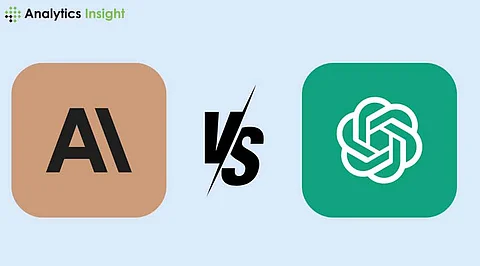

Artificial Intelligence prompted the businesses to shift their models by developing ways to automate, manage or comprehend their valued clients. However, there is a struggle in choosing the appropriate AI assistant for the desired purpose enhancement in AI is concerned. Two major players in this field are Claude AI, developed by Anthropic and Chat GPT developed by Open AI.
Here, we are going to explore the strengths and limitations of Claude AI and ChatGPT in business contexts. Looking at Claude AI vs ChatGPT for business, both of them are capable of serving business purposes but with recognizable differences. One or the other choice among these systems depends on certain business aspects.
Safety and Ethical Concerns: Claude AI has a strategy to instill ethical principles and capability in offering less harmful or inappropriate outputs. This is appealing to companies that have to comply with certain rules especially healthcare or finance where safety, accuracy and compliance are top priorities.
Focus on Long-Term Tasks: Claude tops in understanding long-term reasoning and context maintenance. It may be better suited for tasks that require consistent performance over extended interactions. Like legal advice or lengthy business reports.
Human Alignment: In the case of Claude AI, there is more emphasis on working towards human goals thereby making compliance to certain policies of the organizations easier since not many off brand responses will be generated.
Collaborative Problem Solving: It works by making users and itself partners in undertaking certain activities, encouraging conflict resolution and providing opinions on the course of actions to take.
Model Updates: Because Claude is the latest in development, he does not have a big user base or plenty of features when compared with ChatGPT, especially when it comes to the use of integration with third-party apps.
Less General Knowledge: Claude may not be as encyclopedic as ChatGPT for certain areas which can limit its use in more general or broad business inquiries.
Versatility and General Knowledge: ChatGPT is particularly praised for its broad scope as it can perform complex, technical procedures as well as creative ones. This is particularly convenient in situations that require customer care, marketing, content production and even general questions.
Integration Capabilities: ChatGPT works with different applications such as slack, Microsoft office, as well as other customer relations management tools. It has been incorporated with plugins and Application Programming Interfaces (APIs), which businesses can use when embedding it into their operations. Such adaptability is beneficial in growing as well as mechanizing the business processes.
Faster Model Iteration: Open AI large language models always have the newer version out with improvements; therefore they keep getting better with time. It is also connected to GPT 4 where the ‘paid for’ version is, to give even better replies.
Customization: Companies have the option of customizing ChatGPT for some aspects or use it with specific datasets making it appropriate for use on particular purposes like employee orientation, projects, or CRM at the organization level.
Cost-Efficiency: It has several cost structures that can favor small and large businesses and its subscription models (e.g, ChatGPT Plus) offer higher-quality outputs at affordable rates.
Risk of Over-Generation: There could be instances when ChatGPT would generate overly verbose or tangential responses, which could require more oversight in certain business contexts, especially where precision is critical.
Contextual Retention: ChatGPT sometimes struggles with maintaining context over long conversations, which can be a drawback for tasks that require sustained attention and coherence.
Where small and medium businesses require an AI assistant to perform multiple functions such as marketing, customer service, and internal process automation, it is likely that ChatGPT would be more ideal due to its ability, scope of knowledge, and incorporation features.
Where the market requires security, ethics, or long-term decision making, Claude AI is likely to be more appropriate when it comes to business needs, especially in the healthcare, finance, or law sectors, where ethics matters more.
Ultimately, the "better" assistant depends on the business context. ChatGPT offers broader functionality while Claude may be better suited for businesses that require more control and safety in specific environments.
